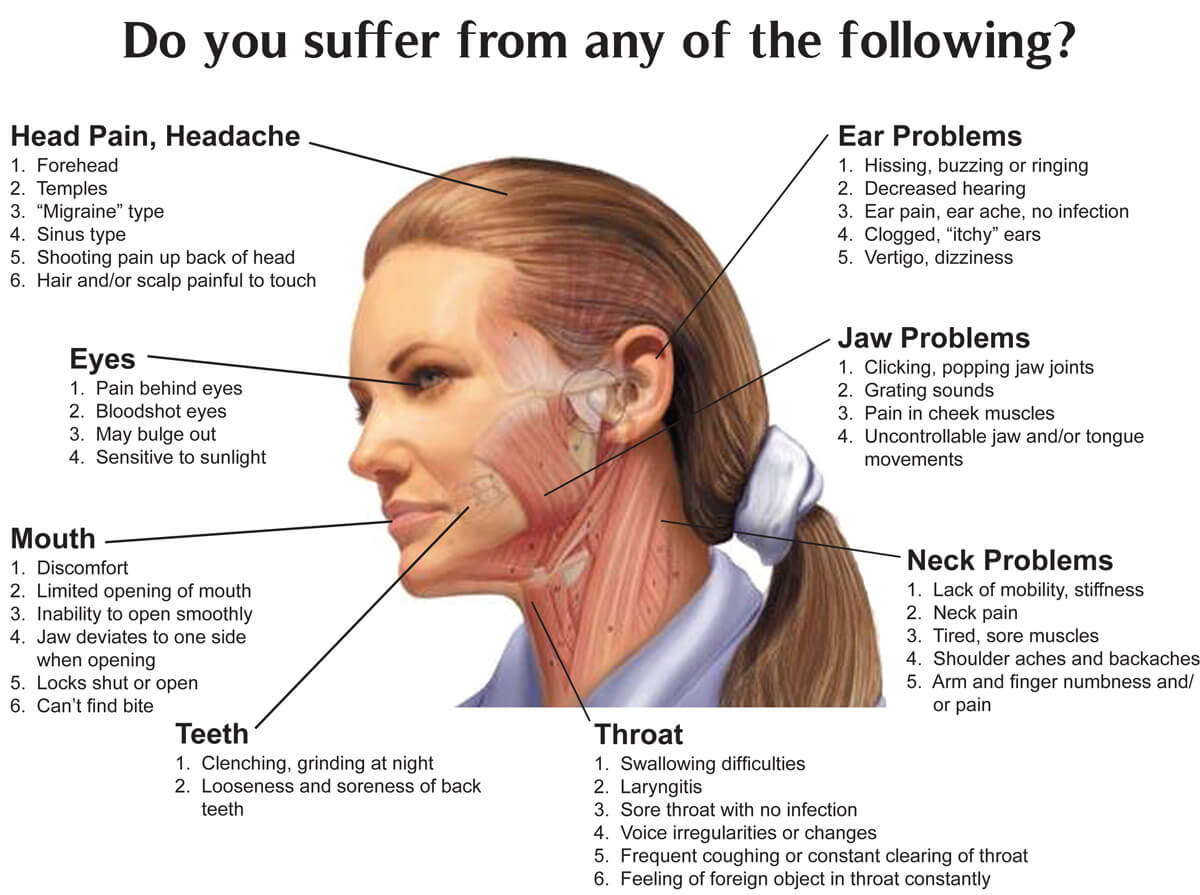Temporomandibular joint disorders can cause pain in your jaw joint, surrounding tissues and muscles that control jaw movement.
Cause, severity & treatment
The temporomandibular joint (TMJ) acts like a sliding and translating hinge, connecting your jawbone to your skull.
The exact cause of a person’s TMJ disorder is often difficult to determine. Your pain may be due to a combination of problems, such as arthritis or jaw injury. Some people who have jaw pain also tend to clench or grind their teeth, but many people habitually clench their teeth and never develop TMJ disorders. In most cases, the pain and discomfort associated with TMJ disorders can be alleviated with self-managed care or nonsurgical treatments. Severe TMJ disorders may require surgical repair.

